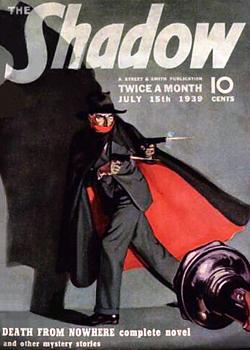New questions to ask your potential fund manager: “so, how did your high school lacrosse team do? And how was the cuisine in the cafeteria?” If the answers were anything close to “great” and “scrumptious,” run away! Run away! As it turns out, new research shows that managers who come from relatively modest, perhaps even challenged, backgrounds tend to surpass their J. Crew wearing peers. So if you can find a kid whose forebears were, say, poor Tennessee farmers, he probably deserves your money. (Especially if his fund is closing to new investors, say, at the end of September.) Thanks to Ira Artman, longtime reader and friend of the Observer, for the heads-up!
After 35 years with Legg Mason, Bill Miller bought himself and his funds free of them. Mr. Miller manages two funds, Miller Income Opportunity Trust (LMCJX) and Legg Mason Opportunity (LGOAX), through a firm that was 50% owned by Legg Mason. By the end of 2016, “subject to certain conditions,” Legg will have sold its stake to Mr. Miller. We were pretty skeptical when Legg gave Mr. Miller and his son the reins of a new fund bearing the Miller, rather than Legg Mason, name. We likened it to a retirement present from the firm to an old, beloved employee who was being shown the door. Its performance since them has not materially softened our skepticism:

SMALL WINS FOR INVESTORS
Effective September 1, 2016, T. Rowe Price Health Sciences Fund (PRHSX) reopened to new investors. Price concluded that it was in the shareholders’ best interests to reopen the fund. The $2 billion in outflows that coincided with the announcement of a manager change may have entered into the equation.
Wells Fargo Discovery Fund (WFDAX) reopens on September 12, 2016, about two weeks after its long-time manager, Tom Pence, retires. Coincidence? Brownie points to anyone who remembers that this fund started life as Strong Mid Cap. Strong had the industry’s most spectacular flameout: founder Dick Strong got named for improper trading, had to admit to wrongdoing, was banned for life from the securities industry, had to sell his firm and fork over $140 million in fines. In the decade since it’s been a very consistently strong performer.
The $4.8 billion Sequoia Fund (SEQUX) has reopened. There was a time when that would have been joyful news to potential investors. Now we’re stuck looking at the rubble and wondering what they’ll be able to rebuild.
Oakmark International Small Cap Fund (OAKEX), Oakmark International Fund (OAKIX) and Oakmark Global Fund (OAKGX) have all reopened to new investors. Small Cap and Global each have about $2.5 billion in assets; International is about ten times as large. All have had a rocky run over the past three or four years. All have seen some outflows, though I wouldn’t describe them as “crippling” or any such. Two of the funds have Morningstar’s “Gold” rating while the third, OAKEX, is “Bronze.”
CLOSINGS (and related inconveniences)
Mairs & Power Small Cap Fund (MSCFX) will close on September 30, 2016. It’s a five-star fund with nearly $300 million in assets. Mairs & Power point to the desire for “a more stable asset base and the continued efficient management of the Fund” as their rationale for closing it.
OLD WINE, NEW BOTTLES
Effective August 15, 2016, the Aberdeen Global Fixed Income Fund (CUGAX) changed its name to the Aberdeen Global Unconstrained Fixed Income Fund. For whatever reason, Morningstar’s system hasn’t yet picked up the change.
Nuveen NWQ Global Equity Fund (NGEAX) has become Nuveen NWQ Global All-Cap Fund. (Shhhh …. As of 8/30/2016, Morningstar doesn’t know.)
Altegris/AACA Real Estate Long Short Fund (RAAAX) has been renamed Altegris/AACA Opportunistic Real Estate Fund with no change of strategy.
SPDR Russell Small Cap Completeness ETF (RSCO), a singularly dumb name which reflected its former index, the Russell Small Cap Completeness Index, has become SPDR S&P® 1000 ETF (SMD).
Effective August 12, 2016, WHV International Equity Fund became Shelton International Select Equity Fund (WHVAX) while WHV/Acuity Tactical Credit Long/Short Fund was renamed Shelton Tactical Credit Fund (WHAAX).
OFF TO THE DUSTBIN OF HISTORY
 Thanks, as ever, to TheShadow who knows not only what evil lurks in the hearts of men but also what news lurks in the darkness of the SEC daily filings. His vigilance, and willingness to share timely finds on our discussion board, make this portion of our monthly issue easier for me to produce and more complete for our readers.
Thanks, as ever, to TheShadow who knows not only what evil lurks in the hearts of men but also what news lurks in the darkness of the SEC daily filings. His vigilance, and willingness to share timely finds on our discussion board, make this portion of our monthly issue easier for me to produce and more complete for our readers.
“Considering the small size of the [fund] and other relevant considerations” [hmmm … the effect of a 23% short position against an insistently rising market?], its Board has decided to liquidate Aberdeen Multi-Manager Alternative Strategies Fund II (ARDWX) on or about October 14, 2016.
Aberdeen Emerging Markets Debt Local Currency Fund disappeared into the Aberdeen Emerging Markets Debt Fund (AKFAX) on August 15, 2016.
Also on August 15, 2016, Aberdeen Asia-Pacific Smaller Companies Fund, Aberdeen Ultra-Short Duration Bond Fund, Aberdeen European Equity Fund and Aberdeen Latin American Equity Fund were liquidated. Columbia Global Unconstrained Bond Fund (CLUAX) became all too constrained at the end of August, 2016 and is no longer with us.
Consilium Emerging Market Small Cap Fund (CEMSX) will be liquidating its assets at the close of business on November 23, 2016.
Croft Focus Fund (CIFVX/CRFVX), contrarily, liquidated at the end of August solely “due to the relatively small size of the Fund.”
Cupps All Cap Growth Fund (CUPAX) and Cupps Mid Cap Growth Fund were both liquidated on August 31, 2016.
Even Keel Multi-Asset Managed Risk Fund (EKMAX) will liquidate on September 16, 2016. It’s a curious decision since even though the fund was a weak performer it still had nearly $120 million in assets. No word in the filings about what drove the decision.
First Trust High Income ETF (FTHI) is absorbing First Trust Dividend and Income Fund (FAV), a closed-end fund. That’s the first CEF to ETF merger I recall.
The $11 million Hartford Duration-Hedged Strategic Income Fund (HABEX) will disappear on or about October 21, 2016. It’s probably for the best, the fund has underperformed just about every benchmark (from short-term bonds to multi-sector bonds) that I checked for it.
Good Harbor Tactical Core Developed Markets Fund GHDAX and Good Harbor Tactical Core Emerging Markets Fund GHEAX both head to that great good harbor in the sky on September 29, 2016.
Neuberger Berman Flexible Select Fund (NFLAX) will liquidate on October 3, 2016. It’s another fund damned by not standing out; it wasn’t great, it wasn’t awful, it wasn’t dirt cheap and it wasn’t ridiculously expensive. In the end, it simply wasn’t compelling.
Oaktree Emerging Markets Equity Fund (OEEDX) will liquidate on September 30, 2016. They should be embarrassed by their decision. The fund is under two years old and there’s no compelling reason why they should be so quickly pulling the rug out from under their investors. The firm manages nearly $100 billion and might reasonably be expected to put some considerable time and energy into resuscitating a new fund in an area outside of their traditional strengths. Instead, without a word of explanation, they’re turning off the lights and walking away.
The Profit Fund (PVALX) has closed to new investors and will liquidate on September 28, 2016. The “Profit” in the name is, of course, Eugene Profit who has managed the fund since the heady days of the late 1990s. Thomas Heath wrote an interesting profile of Mr. Profit, a former cornerback for the Patriots and Redskins. The article reports that Mr. Profit’s firm was managing $1.8 billion in 2012. It looks, from the most recent Form ADV, like that figure is down to $325 million. The Profit Fund, a reasonably strong performer until mid-2015, accounts for just $5 million of that total.
On August 23, 2016, the Board of Trustees of PNC Funds approved plans of liquidation for each of PNC Small Cap Index Fund (PESCX), PNC Mid Cap Index Fund (PMCEX) and PNC Mid Cap Fund (PMCAX). The funds have about $25 million between them. PNC Mid Cap Fund will be the first to go, on or about October 31, 2016, then its siblings follow on December 31, 2016.
NYSE regulators have informed the advisers to QuantShares U.S. Market Neutral Size Fund (SIZ) that they are “not in compliance with NYSE Arca Inc.’s continued listing standards with respect to the number of record or beneficial holders.”
Stone Ridge Reinsurance Risk Premium Fund (SREIX) is being “reorganized” with and into Stone Ridge High Yield Reinsurance Risk Premium Fund (SHRIX).
Victory RS Focused Growth Opportunity Fund and Victory RS Focused Opportunity Fund both liquidated on August 26, 2016.
USA Mutuals Takeover Targets Fund (TOTNX) and USA Mutuals Beating Beta Fund (BEATX) are taken over and beaten by beta, on or about September 29, 2016.
Witherspoon Managed Futures Strategy Fund (CTAAX) will close down on September 23, 2016.












